All parents want the best for their babies, and part of the responsibility of parenting is helping babies maintain good health. While infants don’t often have teeth (one in every 2,000 babies is born with one or more teeth) they develop their first teeth around six months of age. Teeth that develop before birth are referred to as natal teeth. Neonatal teeth are the teeth that come in after the first month of life. A baby’s first set of teeth are called primary or milk teeth, and during childhood, they are replaced with permanent teeth to last throughout adulthood.
Oral hygiene should begin shortly after the baby is born to prevent infections and dental problems.
Thrush
Thrush, a fungal infection caused by Candida (yeast), often appears in the areas in the mouth that may have damaged tissue caused by sucking a pacifier or breastfeeding. Thrush symptoms consist of white patches inside the mouth or on the tongue. Thrush can be treated with topical, oral antifungal medicine or with systemic medicine, which is swallowed. Some ways to prevent thrush are cleaning bottle nipples and pacifiers regularly, and drying and cleaning nipples after breastfeeding.
Cleaning your baby’s gums after a feeding will also help keep their mouths clean and help prevent infection. Avoid testing the temperature of bottles or cleaning pacifiers with your mouth because bacteria can be passed on to the baby. In fact, babies are not born with the ability to form tooth decay. They catch the bacteria from their parents!
Teething
Teething is when the baby’s first set of teeth start to break through the gums. Teething usually starts around six months of age, and by the time the baby is three years old, he or she will have all 20 primary teeth.
Babies usually get fussy when they start teething, and they will bite fingers or toys to relieve the pressure on their gums. Teething rings can help relieve the symptoms of teething, as well. However, make sure to thoroughly wash the teething ring each day so that bacteria doesn’t grow on it.
After the baby’s teeth start to come in, use a small, soft bristled toothbrush to clean the baby’s teeth. As the baby’s teeth come in and he or she begins to eat solid foods, continue brushing teeth with water (not toothpaste) and cleaning their gums.
Around age one, bring your little one to your dental appointment. Dr. Greenfield will perform a brief dental exam to make sure development is coming along as it should. This visit will also allow your baby to become familiar with our office and team. We love kids!
For more information on infant dental care, or to schedule your baby’s first dental exam, call 248-693-6213. Dr. Greenfield’s dentist office, Lake Orion Family Dentistry, serves patients from Lake Forest, MI and surrounding communities.









